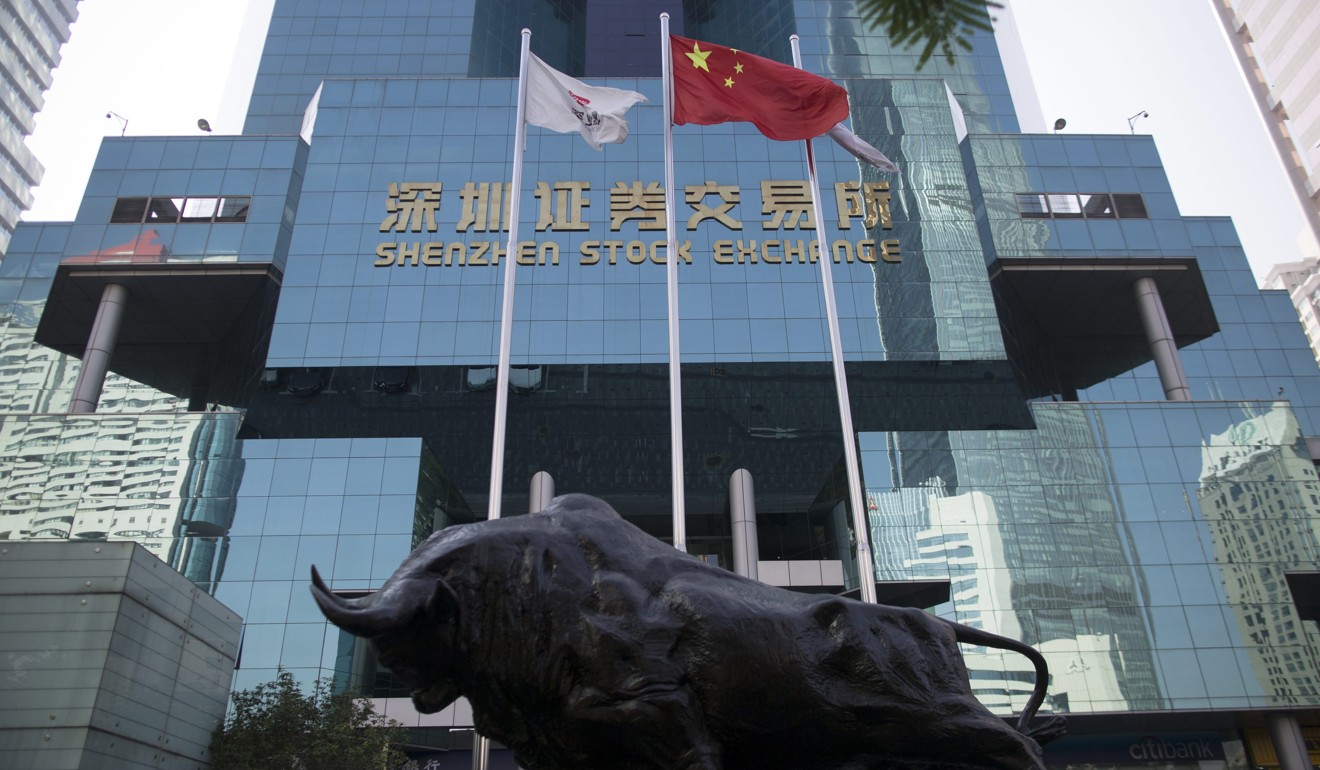
Hong Kong stocks fall by most in almost two months after tech sell-off in US
Hong Kong stocks dropped by the most in almost two months on Monday, led by falls in technology giant Tencent.
It followed a sell-off in major tech shares led by Apple on Friday’s amid mixed US markets.
The Hang Seng Index dropped 1.2 per cent, or 322.25 points, to 25,708.04, retreating for a second day after hitting a near two-year high on Thursday. The decline was the biggest since April 18. The Hang Seng China Enterprises index fell 1 per cent, or 106.32 points, to 10,485.85.
Tencent lost 2.5 per cent to HK$270.6 and investment company Legend Holdings fell 0.6 per cent to HK$5.11. Blue chips also slipped, with New World Development dropping 2.2 per cent to HK$10.46 and CKH Holdings down 0.3 per cent to HK$99.75.
Tongda Group fell 5.4 per cent to HK$2.11, snapping a two-day gain after it bought back 10.46 million shares for HK$21.63 million last week. Market investors were initially worried that the electrical and electronic appliance components maker would be one of the companies targeted by short-seller Muddy Waters Research. However, Man Wah Holdings and Dali Foods Group turned out to be the companies named in the bearish reports by Muddy Waters.
Rebound momentum is still insufficient before the announcement of whether A -shares will be included in the MSCI index
Man Wah bucked the broader Hong Kong stock market on Monday, rising 2.7 per cent to HK$6.74.
“The Hang Seng Index is dropping from high levels, dragged down by Tencent, and it may test the 10-daily moving average technical level at 25,896 initially,” said UOB Kay Hian strategist Hannah Li.
Mainland markets also declined. The Shanghai Composite Index fell 0.6 per cent, or 18.52 points, to 3,139.88 while the CSI 300 — which tracks the large caps listed in Shanghai and Shenzhen — inched down 0.1 per cent, or 1.78 points, to 3,574.39.
The Shenzhen Composite Index lost 1.1 per cent, or 20.41 points, to 1,836.76 while the Nasdaq style ChiNext shed 1.2 per cent, or 20.58 points, to 1,775.55.
“Rebound momentum is still insufficient before the announcement of whether A shares will be included in the MSCI index in the middle of next week,” Li said.
Smaller companies led the declines in mainland equities caused by concern about a glut of stock supply after the China Securities Regulatory Commission backtracked from slowing approvals of new share sales. The regulator gave the nod to eight companies to sell initial public offering shares last Friday, compared with four a week earlier and seven the week before that.
Nanjing Aolian AE&EA, a maker of car electronics equipment tumbled by the 10 per cent daily limit to 21.02 yuan in Shenzhen, and Jiangsu Leili Motor slumped 9.9 per cent to 87.28 yuan.
Analysts expect China’s economy to face headwinds in the months ahead after last week’s release of lower-than-expected PPI inflation, which came in at 5.5 per cent in May compared with 6.4 per cent in April.

In Asian trading, Tokyo’s Nikkei 225 lost 0.5 per cent while South Korea’s Kospi was down 1 per cent.
The Dow Jones Industrial Average finished 0.4 per cent higher on Friday but the S&P 500 fell 0.1 per cent and the Nasdaq Composite slid 1. 8 per cent. Apple sank 3.7 per cent while Microsoft, Amazon, Facebook and Google all lost more than 1 per cent.


